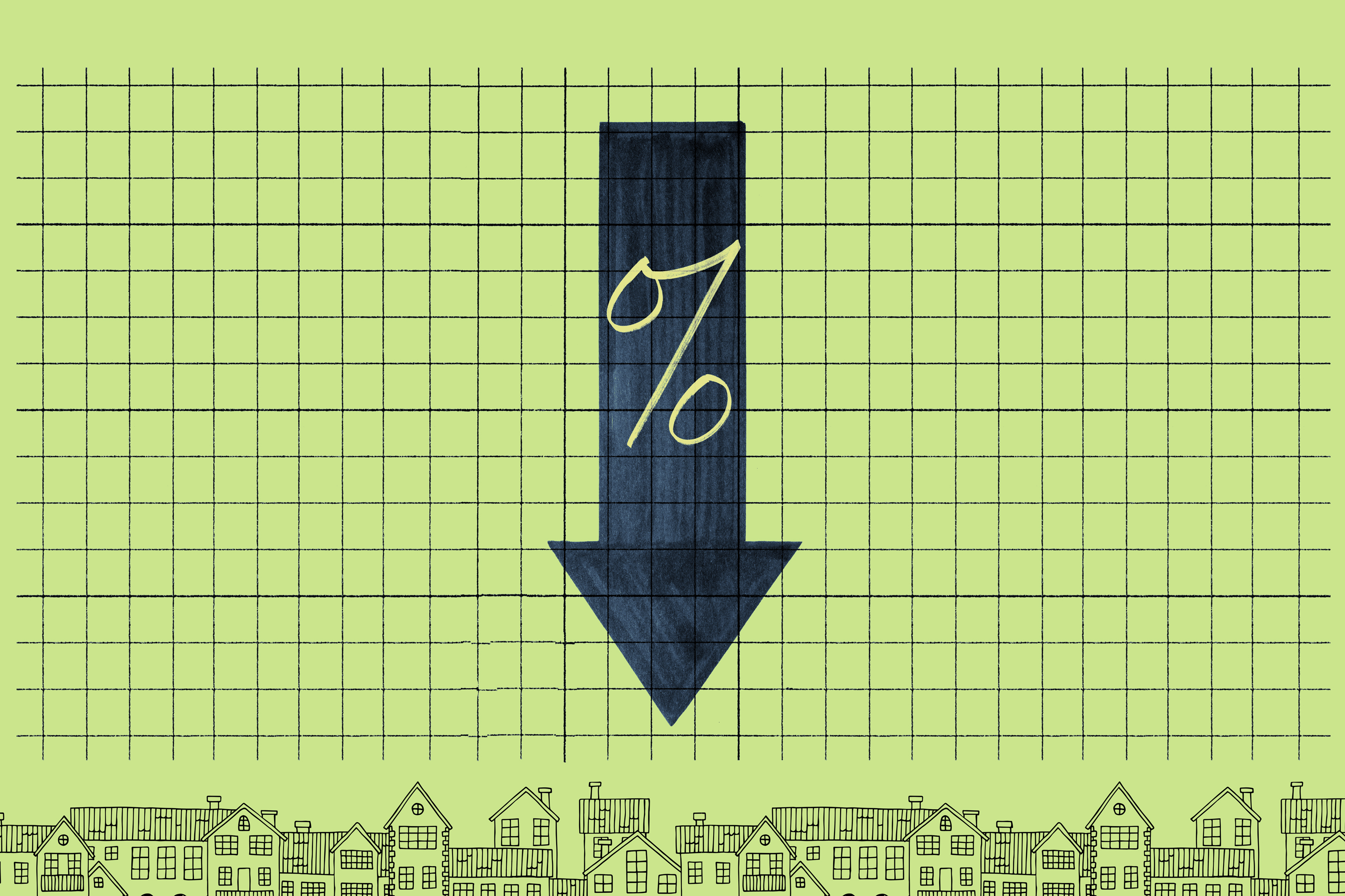Recent Videos
Let's talk!
A Biased View of How Do Reverse Mortgages Get Foreclosed Homes
-
A Home Loan Cash Flow Commitment (MCFO) is a kind of home loan pass-through unsecured general responsibility bond that has numerous classes or tranches. MCFOs use cash flow from a pool of home loans that generate income to pay back financiers their principal plus interest. Payments are gotten from mortgages in the swimming pool and handed down to holders of the MCFO security.
MCFOs do not hold a lien on the home loans held by the security. They are merely bound by agreement to use the income from the home loans to pay their financiers. MCFO owners have no legal rights to the real underlying home mortgages, thus MCFOs are riskier than CMOs. Like CMOs, MCFOs are a type of mortgage-backed security produced through the securitization of private property home loans that draw interest Browse this site and primary payments from that particular swimming pool of home loans.
Like CMOs, MCFOs bundle home loans into groups with different payment attributes and run the risk of profiles called tranches. The tranches are paid back with mortgage principal and interest payments in a specified order, with the highest ranked tranches coming with credit improvement, which is a form of defense versus prepayment danger and payment default.
The stated maturities of MCFO tranches are figured out based on the date when the last principal from a swimming pool of mortgages is expected to be paid off. But maturity dates for these kinds of MBS do not take into consideration prepayments of the underlying mortgage loans and thus may not be an accurate representation of MBS risks.
CMOs, MCFOs and other non-agency mortgage-backed securities those home loan bonds not backed by the government-sponsored business Fannie Mae, Freddie Mac or Ginnie Mae how much are timeshare maintenance fees - were at the center of the financial crisis that resulted in the bankruptcy of Lehman Brothers in 2008 and resulted in trillions of dollars in losses on mortgage loans and millions of property owners losing their homes to default.
In December 2016, the SEC and FINRA announced brand-new guidelines to dampen MBS threat with margin requirements for CMO and associated MBS deals.

The Main Principles Of Bonds Payment Orders, Mortgages And Other Debt Instruments Which Market Its
A mortgage swimming pool is a group of home mortgages kept in trust as collateral for the issuance of a mortgage-backed security. Some mortgage-backed securities provided by Fannie Mae, Freddie Mac, and Ginnie Mae are known as "pools" themselves. These are the simplest kind of mortgage-backed security. They are likewise called "pass-throughs" and sell the to-be-announced (TBA) forward market.
Home loan swimming pools, which are groups of mortgages, tend to have comparable attributes, such as issuance date, maturity date, and so on. While mortgage-backed securities are backed by home loan collateral with comparable qualities, collateralized financial obligation obligations are backed by collateral with differing qualities. An essential advantage of home mortgage swimming pools is that they provide financiers with diversity.
Home mortgage pools are consisted of home loans that tend to have similar characteristicsfor instance, they will usually have close to the very same maturity date and rate of interest. When a loan provider finishes a home mortgage transaction, it typically offers the home loan to another entity, such as Fannie Mae or Freddie Mac. Those entities then package the home mortgages together into a mortgage swimming pool and the home mortgage swimming pool then functions as collateral for a mortgage-backed security.
A CDO is a structured monetary item that pools together money flow-generating properties and repackages this property swimming pool into discrete tranches that can be offered to financiers. A collateralized debt commitment is named for the pooled assetssuch as mortgages, bonds and loansthat are essentially debt obligations that work as collateral for the CDO.

Home mortgage swimming pool funds are excellent for financiers looking for realty exposure since they are a low-risk financial investment that moves individually of a stock and bonds and offer a foreseeable month-to-month earnings. Mortgage pool fund loans are secured by realty and are referred to as difficult cash due to the fact that unlike the majority of bank loans (which rely on the credit reliability of the borrower), difficult money loans think about the value of the underlying property.
Due to the fact that of their shorter terms, hard cash loans are less susceptible to being impacted by rate of interest swings, which means it is a more predictable and dependable capital. Like mentioned above, home loan swimming pool funds vary, where some concentrate on particular home types, while some are more basic. These distinction can affect danger and return, so it is essential to look into the different home loan pools before diving in.
Some Known Incorrect Statements About After My Second Mortgages 6 Month Grace Period Then What
There's nothing much better than marching your back door on a hot summer day and jumping in your own pool. But take care when seeking to purchase or refinance a home with a pool. That swimming pool can trigger hold-ups in the home loan process, or drown your loan application altogether.
Stubrud dealt with a customer who wanted a reverse home mortgage, but had an empty, aging swimming pool on the property. Reverse home mortgages follow FHA guidelines, which are particular about swimming pools. "They do not want it to be a health hazard or a security threat that there's a big gaping hole in the ground." So what did the customer do? "How they managed it was that they filled it in," says Stubrud.
The swimming pool disappeared. There were no other alternatives for this aging homeowner who didn't have the cash to get the pool in working order. However Stubrud says the customer did raise an alternative idea. "They really wished to keep it and they were going have this subterranean greenhouse.
Lots of house owners think that what's on your residential or commercial property is your company. While that's partly real, you welcome examination to nearly every inch of a house when you decide to fund it with the loan provider's money. It holds true for FHA loans in addition to any other loan type. It comes down to security.
A pool that is a falling threat or is a breeding place for germs is a risk to the health of the residents. Not to discuss it opens the property owner up to claims (when does bay county property appraiser mortgages). The very same standards would use to things like a missing stairs outside the back entrance, missing out on hand rails, or exposed lead-based paint.
Repairing the swimming pool to get it into working order will allow the loan procedure to continue. When buying a house, this could be a predicament. It's dangerous to use your own funds to make repair work on a house that's not yours yet specifically pool repair work which can vary from a few hundred to a few thousand dollars - find out how many mortgages are on a property.
What Does What Metal Is Used To Pay Off Mortgages During A Reset Do?
There might be another way to make repair work, however. "The debtor will need to get a quote for the necessary repairs," says Sarah Bohan, VP of Corporate Relations at MSU Federal Cooperative Credit Union. "If the repair work are scheduled to happen after the closing, the lending institution will usually ask for to hold 1.
You get back any money left over after everything's done. But don't depend on this option, states Bohan. "Lots of lending institutions are not able to enable for repairs after the home loan closes since they sell their loans on the secondary market and need to provide the loan within a set timeframe." Make certain your loan provider enables repairs after closing before you concur to purchase a house with a run-down swimming pool.

